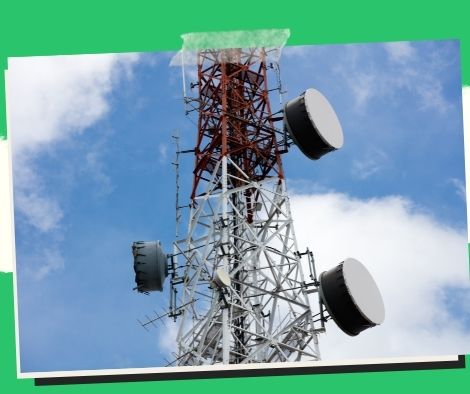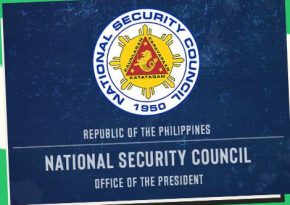
Telcos are prepared to follow the law requiring SIM card registration.
The three telcos operating in the nation applauded the passage of the SIM Card Registration Bill and stated that steps are being taken to assure their compliance.
Froilan Castelo, general counsel for Globe Telecom Inc. (Globe), expressed his appreciation for “a new regulatory framework” in a statement released on Monday. This environment would enable excellent defenses against mobile phone-related crimes and cyber threats.
After facing past obstacles, Castelo stated, “we support the adoption of this act, and we are prepared to comply.”
As of now, Globe is collaborating with the government to write the IRR or implement rules and regulations that will be used to enforce the law and register the millions of current prepaid mobile subscribers.
Roy Ibay, vice president and director of regulatory affairs at Smart Communications Inc. (Smart), said in a separate statement that PTEs like Smart are clamoring for more time to set up and test their systems to guarantee the security of the data that will be collected from prepaid subscribers.
“An education campaign on the SIM registration procedure will be started,” Ibay said. “Smart will ensure that its prepaid clients have a simple and hassle-free experience while registering their SIMs.”
He declared that the business is “prepared” to contribute to developing the bill’s IRR “within the specified period.”
Rodolfo Santiago, chief technology officer of DITO Telecommunity, stated that the government is “assumed” to be in charge of the storage of biometric data that all telcos will utilize to verify the identification of their users for “security, data privacy, and resource optimization.”
Santiago noted that using both the national ID system and the passport system to verify the subscriber’s identification would be very beneficial.
He claimed that since the government would be in charge of storing biometrics data, telecoms wouldn’t need to create another database to keep it, which would be “time-consuming and resource-heavy.”
He declared that everyone shares the Philippine government’s efforts in the DITO Telecommunity.
Mixed feelings
Mobile users’ opinions of the law’s implementation were divided.
Maganda naman din siya para sa akin naman, kasi meron din siyang positive side kahit papaano at sa ngayon, kasi laganap yung scam, ‘no? When using a cell phone to text, some people are unaware of what they click on in their texts. (To me, it is nice since it somehow has a positive aspect; nowadays, scams are common.) Some people don’t know what they are clicking on when they read a text message),” “Ray,” a working student remarked.
According to “Sevy,” a 36-year-old SIM card vendor, the law will only protect users from scammers. Thus, she sees nothing wrong with it.
Student “Nikki,” 22, expressed her feelings and thinks this will serve as a deterrence to online scammers.
“Sa’kin po mas better po yung ganoon because registration siya, may legal procedure na fina-follow, and then for security considerations na rin kasi nga diba, like for example, yung SIM card na ginagamit natin sa ano, lalo na sa mga banking app, bankings, ganoon, registrations, so mas better po n (In my opinion, having a registration is preferable. It has a legal procedure that must be followed; for instance, it is preferable to apply this for the SIM card we use in our banking application,” she stated.
The effectiveness of the law and the effects of its implementation, according to “Denver,” a 22-year-old call center representative, have not yet been determined.
“At first, he seemed amazing, but as time passed, he lost his appeal. For example, he couldn’t register a SIM card since his national ID was invalid, and he couldn’t access his data. To prevent fraud, every piece of information associated with a number should be protected via encryption. (At first, everything seemed nice, but they could not arrange the data system regarding National ID. They are still unable to furnish an ID, let alone register. It is, therefore very difficult to ensure that there won’t be any fraudulent activity because a lot of data will be circulated on one number),” he continued.
President Ferdinand “Bongbong” Marcos Jr., signed Republic Act 11934, also known as An Act Requiring the Registration of SIM Cards, on Monday at Malacaan Palace in front of parliamentarians, Vice President Sara Duterte, and other government representatives.
Marcos claimed that by requiring PTEs to keep a SIM Card Registry for their users, the law would be utilized to stop the spread of different cybercrimes utilizing mobile phones, such as text scams and spam.
Save/Share this story with QR CODE
Disclaimer
This article is for informational purposes only and does not constitute endorsement of any specific technologies or methodologies and financial advice or endorsement of any specific products or services.
 Need to get in touch?
Need to get in touch?

We appreciate your reading. 
1.) 

Your DONATION will be used to fund and maintain NEXTGENDAY.com
Subscribers in the Philippines can make donations to mobile number 0917 906 3081, thru GCash.
3.) 
4.) 
AFFILIATE PARTNERS

World Class Nutritional Supplements - Buy Highest Quality Products, Purest Most Healthy Ingredients, Direct to your Door! Up to 90% OFF.
Join LiveGood Today - A company created to satisfy the world's most demanding leaders and entrepreneurs, with the best compensation plan today.

 Business, Finance & Technology
Business, Finance & Technology

 Business Technology, Finance Technology & Information Technology
Business Technology, Finance Technology & Information Technology





